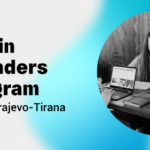The fusion fuel development program is making significant strides, and Croatia is playing a key role in this globally important initiative. As part of the IFMIF-DONES (International Fusion Materials Irradiation Facility – Demo Oriented NEutron Source) program, Croatia is working alongside Spain to test materials that will be used in the construction of the world’s first fusion power plant. This groundbreaking project is one of the largest international scientific and technological collaborations, with a focus on developing fusion energy, which has the potential to revolutionize energy production.
The Importance of DONES for Fusion Power Plant Development
Tonči Tadić, from the Ruđer Bošković Institute (IRB) and coordinator of the DONES.HR project team, highlights that without the DONES device, no fusion power plant can be built. The device is essential for testing the durability of nuclear materials under intense neutron radiation, as well as evaluating various components and technologies that will be used in the production of fusion fuel.
“This project is crucial for testing the durability of nuclear materials to intense neutron radiation, and for developing technologies necessary for fusion fuel production,” says Tadić, who has played a key role in Croatia’s involvement in the program.
Croatia’s Contribution to Fusion Energy Development
Croatia’s participation in IFMIF-DONES is more than symbolic. As a project partner, Croatia is delivering vital equipment for the plant, which is being constructed near Granada, Spain, and is set to be completed over the next 10 years. The facility, valued at 800 million euros, will be the first of its kind to deliver neutrons of sufficient intensity and energy to qualify materials capable of withstanding the extreme conditions necessary for fusion energy.
Kristina Tomić Luketić, a senior assistant at IRB, is part of the Croatian team working on the project. Since February, she has been contributing to the design, modification, and delivery of diagnostic elements for the DONES accelerator. “This project offers a unique opportunity to bridge the gap in fusion technology development, especially in materials science,” she says.
Global Interest in the DONES Project
The workshop currently taking place in Zagreb has gathered interest from across the globe. The USA and China are looking to develop their own version of the DONES device, highlighting the project’s potential to revolutionize energy production through fusion technology. The workshop, which involves scientists and engineers from around the world, is an opportunity to explore the industrial applications of DONES, both in fusion energy and beyond.
Expanding Global Partnerships
The IFMIF-DONES consortium, led by Ángel Ibarra Sánchez, is rapidly expanding, with Italy and Euroatom (the European Atomic Energy Community) in advanced negotiations to join the project. Germany, Japan, France, and Slovenia are also engaged in technical talks to participate.
By next year, a Management Board consisting of representatives from Croatia, Spain, Euroatom, Italy, Germany, and Japan will oversee the project’s operations and determine the future use of the DONES device.
Broader Applications Beyond Fusion
In addition to fusion technologies, the DONES project opens up opportunities in various other fields such as biomedicine, nuclear physics, material physics, robotics, and the production of isotopes for PET-CT scans. This broad spectrum of applications ensures that DONES will have far-reaching impacts, extending well beyond energy production.
Conclusion
Croatia’s involvement in the IFMIF-DONES fusion fuel development program underscores the country’s strategic role in the future of fusion energy. As this international project continues to grow, with more partners joining and global interest surging, fusion energy could soon become a reality, reshaping the world’s approach to sustainable energy production. The contributions of Croatian scientists and engineers to this effort position the country as a key player in the future of energy innovation.






